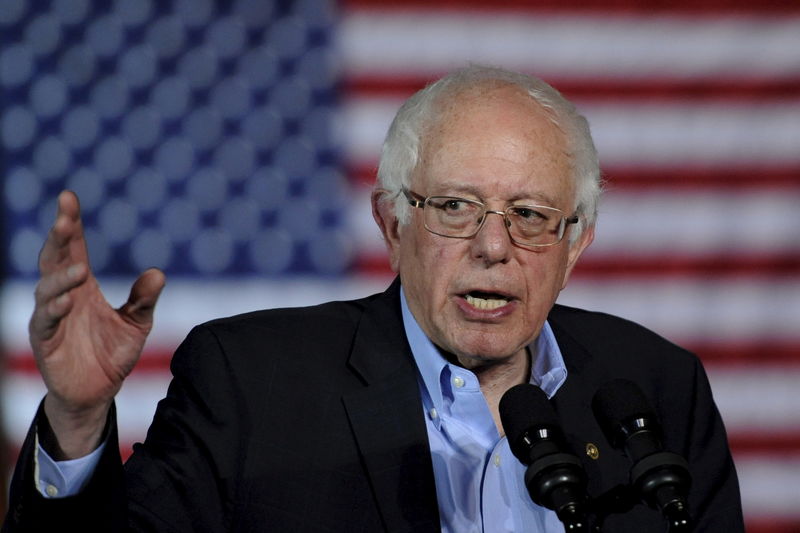By Toni Clarke
WASHINGTON (Reuters) - U.S. Democratic presidential candidate Bernie Sanders said on Tuesday he has placed a hold on President Barack Obama's nominee to head the Food and Drug Administration, claiming he is too close to the pharmaceutical industry to be an impartial regulator.
The move by the U.S. senator from Vermont comes one day after Democratic Senator Edward Markey of Massachusetts also placed a hold on the nomination until the agency agrees to reform its process for approving opioid painkillers.
The nominee, Dr. Robert Califf, is a cardiologist and researcher who joined the FDA a year ago as a deputy commissioner. He previously held senior positions at Duke University, where he founded a large academic research center that received more than half of its funding from the drug industry.
"Dr. Califf's extensive ties to the pharmaceutical industry give me no reason to believe that he would make the FDA work for ordinary Americans, rather than just the CEOs of pharmaceutical companies," Sanders said in a statement.
A "hold" is a procedure by which a senator can prevent a
measure from being voted on by the full Senate.
Peter Pitts, a former associate commissioner for external affairs at the FDA who is now president of the Center for Medicine in the Public Interest, said no hold has ever killed a vote on an FDA commissioner and he does not expect it to now.
"It would be very undemocratic not to let the other senators have their say," he said.
The Senate Committee on Health, Education, Labor and Pensions voted earlier this month to confirm Califf as FDA commissioner, a position open since Dr. Margaret Hamburg stepped down last February.
Kevin Griffis, a spokesman for the Department of Health and Human Services, which oversees the FDA, said Califf "is the right person with the right experience to build on the FDA's unsurpassed record of protecting public health while encouraging innovation and the introduction of new life-saving therapies to the market." He added: "We would like to see him confirmed as quickly as possible."
On Monday, HHS said that addressing the opioid crisis was "a top priority."
Markey wants opioid approval matters to be reviewed by an FDA advisory committee and believes the committee should consider the risk of addiction and abuse during the approval process. He also wants the agency to rescind approval of OxyContin for children and convene an advisory panel to guide
that process.
Sanders said he shared Markey's concerns about the FDA's approach to opioid painkillers. Too many Americans are dying from what has become an "opioid epidemic," he said in a statement.
U.S. deaths from drug overdoses hit a record in 2014, increasing 6.5 percent to 47,055, propelled by prescription painkiller and heroin abuse, according to the U.S. Centers for Disease Control and Prevention.
The FDA does not control drug prices, but Sanders said that "at a time when millions of Americans cannot afford to purchase the prescription drugs they require, we need a leader at the FDA who is prepared to stand up to the drug companies."
Last year, he said, one in five Americans, or 35 million people, could not afford to fill their prescriptions.
Sanders has made healthcare a key theme of his campaign to be the Democratic Party's candidate in the November election. He is competing with former Secretary of State Hillary Clinton and former Maryland Governor Martin O'Malley.
Califf is widely expected to ultimately be confirmed as FDA commissioner.
"I don't think Senator Sanders' hold will slow the process down," Pitts said.

Califf will need to meet with Sanders and reassure him of the FDA's independence, Pitts said. "In the meantime," he added, "He's made his point."
